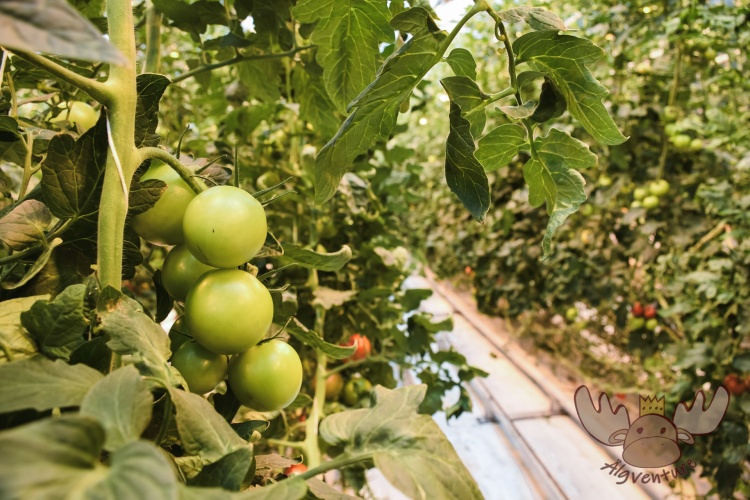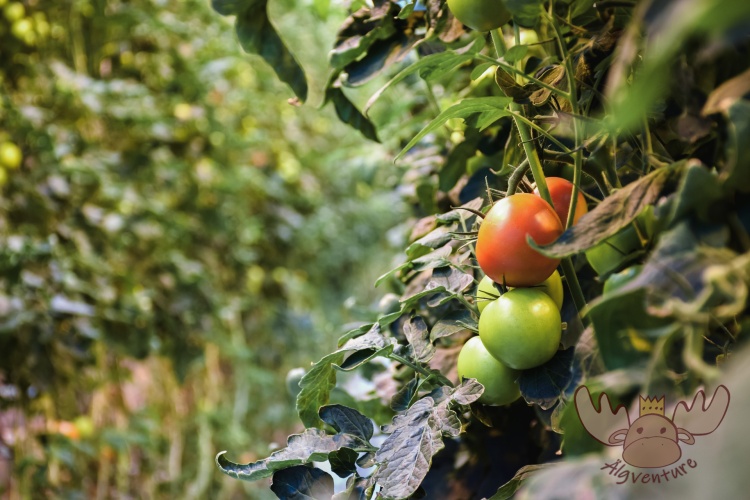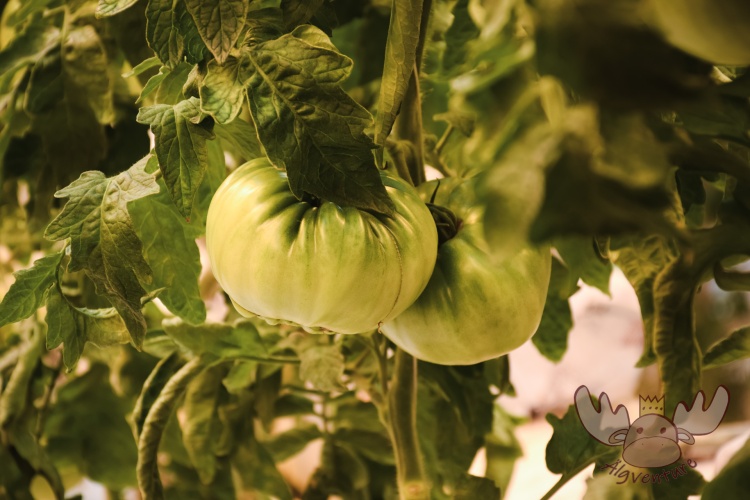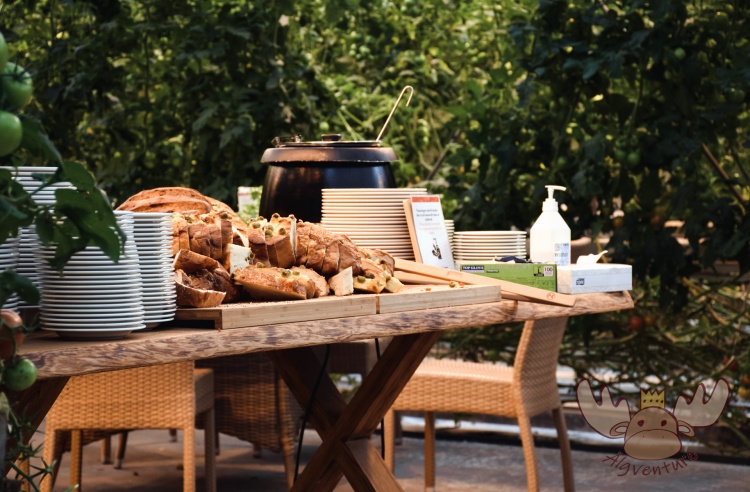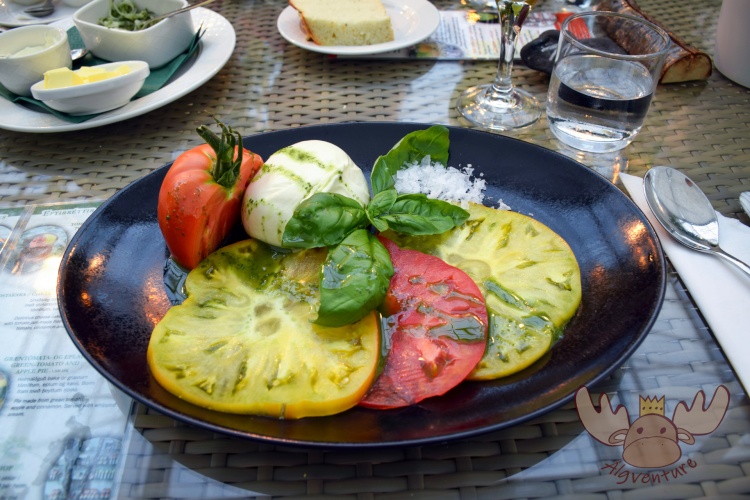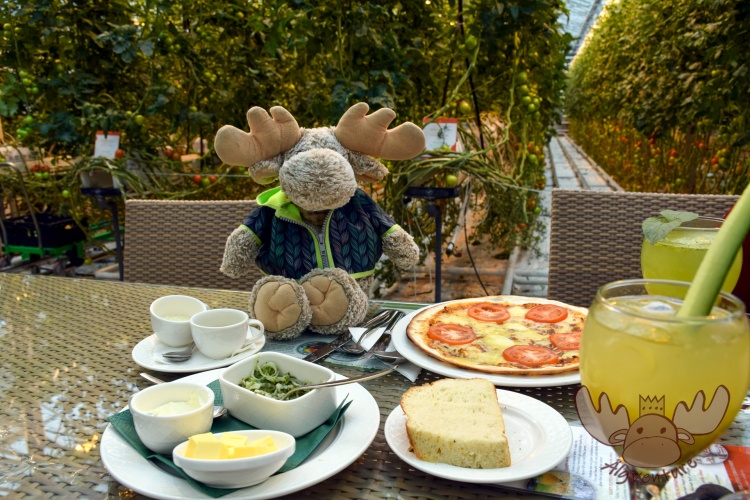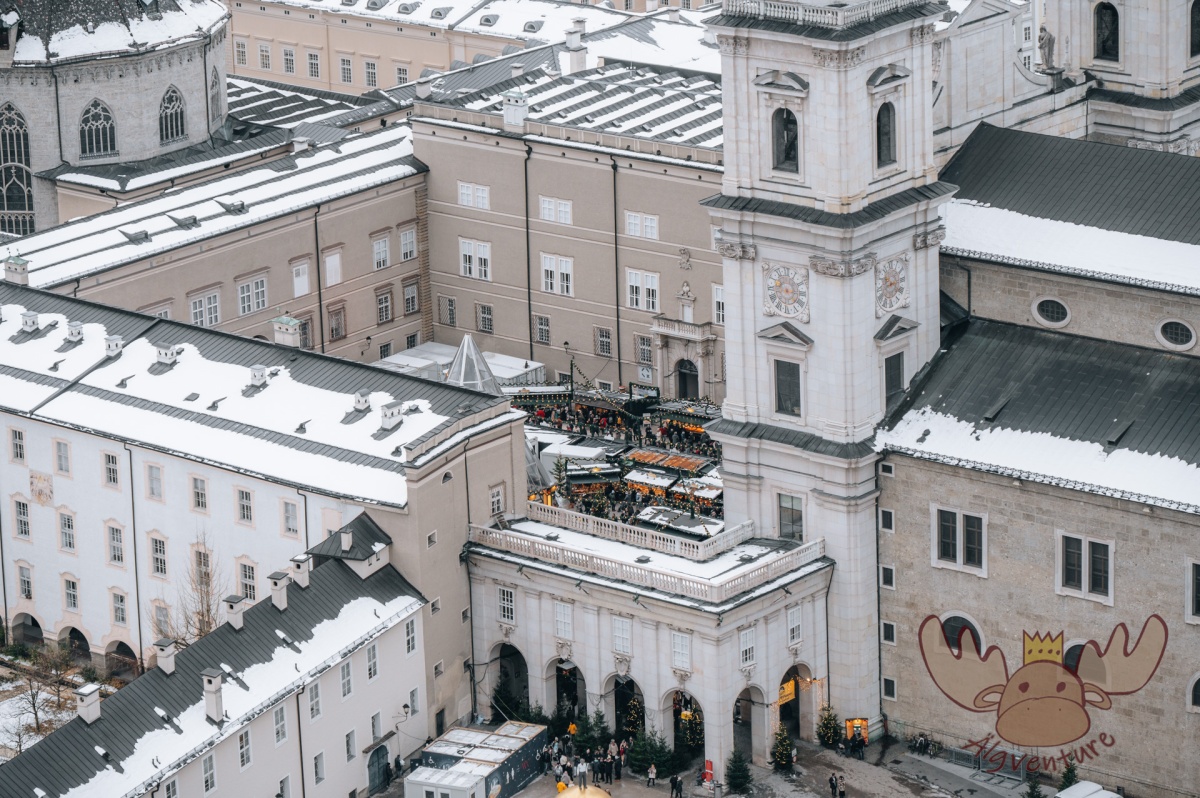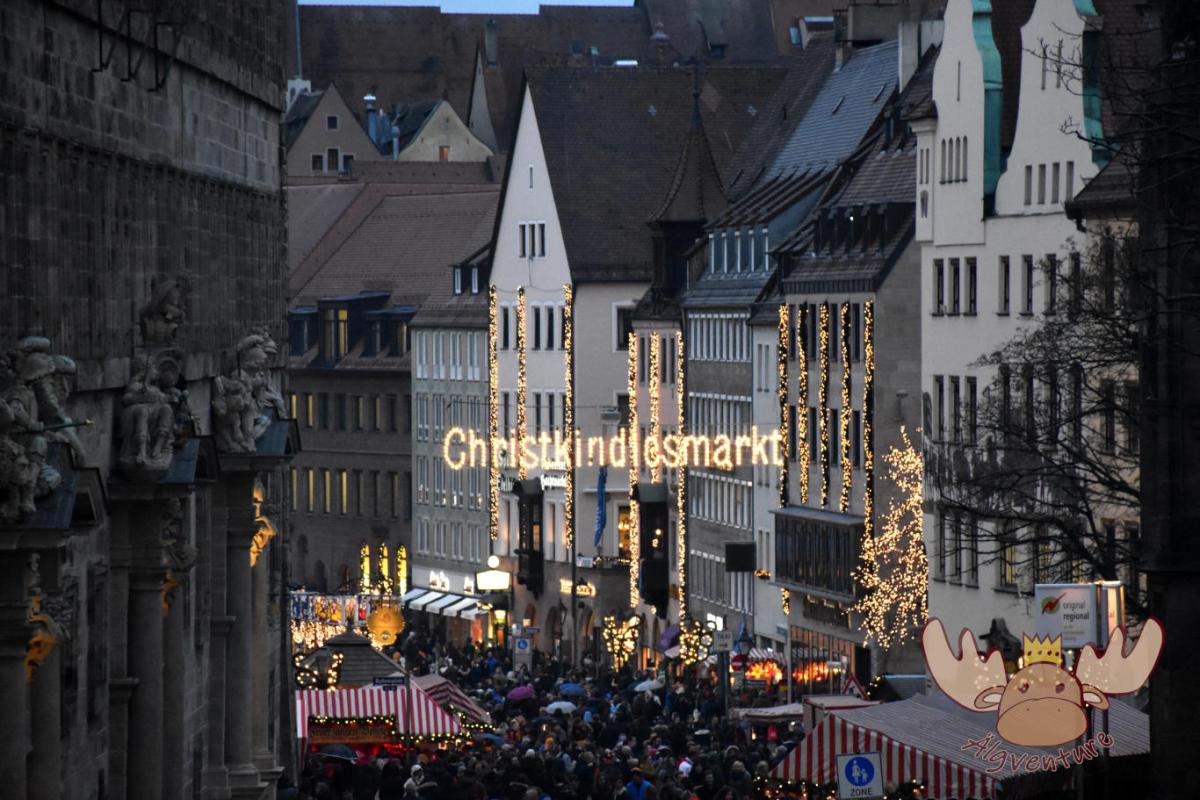Tropical fruit meets the elemental power of the earth
Älgbert Elgson
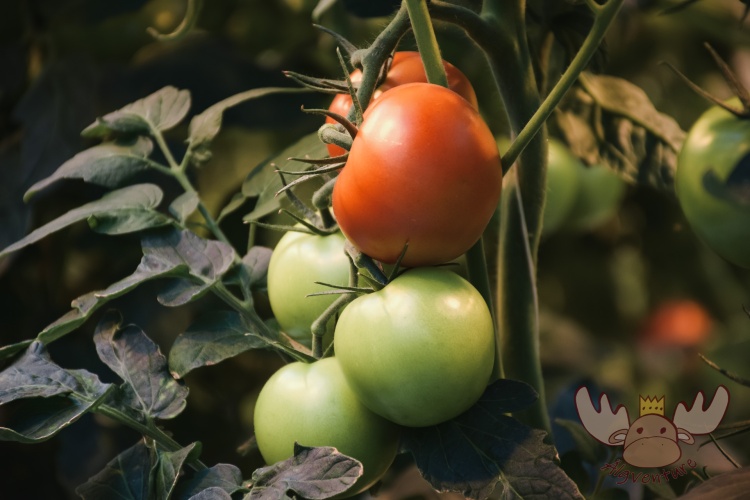
Dieser Artikel ist auch in Deutsch verfügbar.
In the small town of Reykholt, about 100km from Reykjavik, on the so-called Golden Circle, there is the small restaurant Friðheimar. The restaurant only applies to a limited extent, because this is actually an agricultural business that successfully grows tomatoes with the help of greenhouses and the power of the earth – with an attached restaurant.
The trail of history
The family-run company began in 1995 when the current owners purchased and reactivated an existing agricultural business. There were already two greenhouses on the property, which have been heated since 1946 with the hot water from the earth that occurs naturally in Reykholt.
The cultivation capacities have been expanded over the years, so that today the annual harvest is around 370 tons of tomatoes per year. That’s around a ton of the red tropical fruits per day just from this one farm.

Visitors have the opportunity to get to know the approximately 10,000 plants personally on a tour of the greenhouses. You get an insight into the processes and procedures of greenhouse gardening and learn how it is possible to grow vegetables all year round in Iceland’s cold climate and at the end you can either enjoy the fruits of Friðheimar’s hard work in the attached restaurant in the middle of the greenhouse or buy something to take home in the shop or buy your onward journey.
In the summer months between May and September, Friðheimar offers a riding show „Meeting the Icelandic Horse“. For groups of 15 people or more with prior reservation, an insight into the thousand-year-old history of the robust Icelandic horses, which are famous for their five gaits: In addition to walk, trot and canter, Icelandic horses master tölt (a quiet run) and skeið (flying step) and differentiate similar to other horse breeds. After the show there is a visit to the stable.
More information
Iceland was an agricultural country until the 20th century. In the 18th century, almost 99% were employed in this sector, including agriculture and fishing. Like everywhere else in the world, the proportion of the population engaged in food production is decreasing in Iceland. Today only 2% of the population works in agriculture.
The approximately 4,000 agricultural businesses make a living primarily from sheep and cattle farming, as with an average farm size of around 3,000 hectares, only 30 hectares are used as arable land. In addition to potatoes, some grain is also grown on these. The small quantities that can be harvested from this area and, above all, because of the climate, force Iceland to have to import a lot of food. This not only has economic but also ecological disadvantages.
Icelandic farmers are therefore increasingly trying to grow vegetables in greenhouses in geothermally active areas of the country. The hot springs provide the energy to heat the greenhouses. The largest contiguous greenhouse area is in the southwest of Iceland, in the greenhouse town of Hveragerði. Around 40,000 square meters are under glass here, and there is a total of around 200,000 square meters of greenhouse space in Iceland. The Icelanders have managed to produce almost 100% of their own cucumber needs. For chives it is around 80%, for tomatoes around 75% and for lettuce almost 40%. Friðheimar plays a big role here, especially when it comes to tomatoes and cucumbers, as the greenhouses produce around 18% of Iceland’s tomatoes.
Attempts were also made to grow bananas in Iceland, but this was only met with moderate success. Each year, only around 500-2000kg of bananas can be harvested in the largest banana plantation in Europe (depending on how you define „Europe“). However, things are different with Icelandic strawberries. Here the Icelanders can only cover around 5-10% of consumption themselves.
https://www.facebook.com/watch/?v=849163821893456
Useful information
The word has already gotten around that there is an opportunity to eat Icelandic tropical fruits in Reykholt near Friðheimar. Due to its convenient location along the Golden Circle, people like to visit the small restaurant in the middle of the tomato plants in the greenhouse to fortify themselves for further exploration.
Due to the location and because it is becoming increasingly popular with tourists and locals, we strongly recommend booking a table.
In Reykholt there is also a small campsite in the immediate vicinity that is equipped with the most necessary items. If you don’t want to stay overnight in a mobile home, you can also do so in the privately run accommodations in the small town.
How to get there?
Friðheimar is located in the small town of Reykholt directly on the so-called Golden Circle along road 35, about 100 kilometers from the Icelandic capital Reykjavik.
It is possible to get there by public transport, but due to the relative remoteness this is a very time-consuming undertaking.
However, the Golden Circle and its sights can be tackled on a day tour by bus. The day tours start in Reykjavik and we recommend comparing the providers.
There is a sufficiently large parking lot directly at Friðheimar, which can also be used with large mobile homes.
Conclusion:
We were very excited about our visit. The opportunity to use the country’s warmth to grow vegetables is not that common. The Icelanders have managed to cover at least part of their own needs.
The food in the restaurant was very good. Almost everything that comes to your plate grows around you. The soups, drinks, main courses and desserts are made from the cucumbers and tomatoes grown. Small beehives are set up in the greenhouse to pollinate the plants. These don’t bother you at all, but rather add to the appropriate ambience when they fly overhead from one plant to the next. The tables are comfortably placed in the greenhouse and you feel at home.
Anyone who has enjoyed it can then take something home from the shop.


